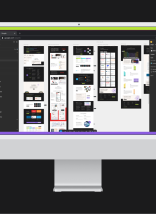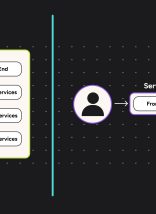Many jobs in the software industry have some level of ‘grind’. The ‘grind’ means days, weeks and (hopefully not) months of extra work that comes with projects. Perhaps a key client needed a feature added, or a certain task proved harder than expected. When you enter the software business, you have to accept there will be times when you have to grind to finish a project. But, it’s important to recognize that there is a fine balance. Taking breaks and resting will benefit teams in the long run.
How Can Preventing Burnout Boost Efficiency?
Developers are thought-workers. They don’t work in a factory churning out the same thing over and over again. They have to know all the tools in the toolbox, know how to use them and know where to find new tools as well. Sometimes they even have to create new tools. A large amount of mental energy is spent in the pursuit of the solution of a problem. Some problems are very complex, and it can take hours just to understand the environment in which a problem exists.
This takes an enormous amount of concentration, which is why you will see most developers with headphones on. It’s not just that they love the new Twenty-One Pilots album—they’re blocking out the rest of the world to eliminate as much distraction as possible while spending their mental energy inside the “zone”.
What it Means to Live in the Zone
The “zone” is a focused mental state where the developer’s mind is fully engaged in solving problems. It takes time for a developer to go from zero to totally zoned in and it can be derailed with a single tap on the shoulder. Every developer has a natural amount of time that they can spend in the “zone”. For some developers, a 40-hour week is all they can take. For others it might be 60 hours. It is a mentally draining experience.
At some point the developer will hit the wall. Their brain reaches its limit and needs to do something else. Encourage teams to get up and walk around, grab a cup of coffee, or play a game of foosball when this happens.
How Do You Know When You’re Burning Out?
Burnout is what happens when a developer is overworking, spending so much time in the zone that nothing else seems to exist. Your brain may turn to mush. It can become difficult to carry on a conversation, make decisions, and write clean code. Writing bad code means constantly going back and making corrections, which ultimately creates more work than the original plan.
Have you ever completed a project as scheduled, but felt frustrated, tired, and abnormal for weeks? This constant state of grinding is not part of a healthy work environment.
How We Stay Focused at Atlantic BT
At Atlantic BT, we do our best to make sure that we are proactive and looking for potential problems before they happen. We borrow ideas from Agile and Scrum to help us avoid potential issues. We do daily huddles to stay informed on how a project is going. We work in sprints so that we can measure our velocity and make adjustments early and throughout the project. When we hear that someone has worked extra hours, we make a point to check in with them and make sure they haven’t hit the wall.
We don’t want teams to grind unless it is absolutely necessary. When we do have one of those unavoidable moments when the team has to work extra to deliver value to our customers, they are focused and ready to step up to the plate.
5 Keys to Avoid the Grinding That Leads to Burnout:
- Plan, Measure, and Adjust—Make a plan. At specific intervals, measure how far and how fast you are going. Adjust your plan according to the measurements to ensure no one is getting overworked.
- Take Breaks—Know your limit and recognize when you have reached it. Step away, reset your brain, and start again. You’ll be surprised at how that problem you couldn’t figure out suddenly has an answer.
- Sleep!—Turn off the Xbox, put down Candy Crush, and Game of Thrones can wait. Your brain needs downtime devoid of stimulation, and there’s no better way to recharge than a good night’s sleep.
- Eat Better—In an industry where pizza and soda are standard fare, we have to push ourselves to find healthy choices. Eating plenty of vegetables and avoiding excessive sugars and empty calories can do a lot for a developer’s mental endurance.
- Exercise—Does your company have a gym like ours? Take advantage! 30 minutes walking at a slow pace is not only better for your health than sitting in your chair, but it also helps rejuvenate your brain to regain your mental energy.
We believe that focused teams develop the best products for our clients. If you have any questions about our processes and techniques, contact our team to learn more.






